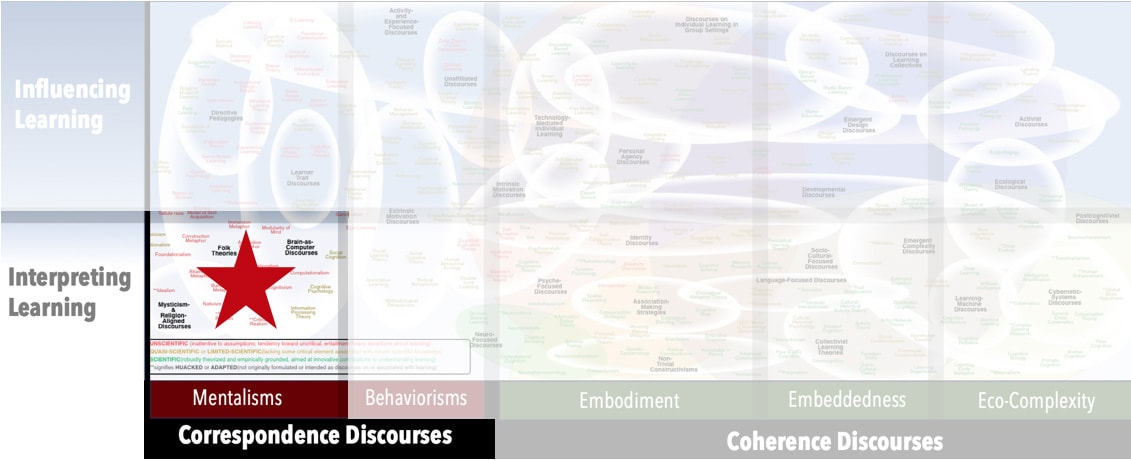Focus
The structure of one’s knowledgePrincipal Metaphors
- Knowledge is … assembled object
- Knowing is … what one has put together
- Learner is … a builder (individual)
- Learning is … assembling, putting together
- Teaching is … giving access; making components available
Originated
AncientSynopsis
Foundationalism is a formalization of the Construction Metaphor. Invoking the image of a building, the perspective argues that justified beliefs rest atop other justified beliefs, all of which ultimately sit atop a foundation of unquestionable (or, at least, unquestioned) truth. As might be expected, contrary discourses have arisen:- Antifoundationalism (Nonfoundationalism) – As the name suggests, an Antifoundationalism is a perspective that explicitly rejects Foundationalism and/or its assumptions of a stable ground for/of knowledge.
Commentary
Foundationalism is one of the uninterrogated orthodoxies of traditional education. Although little more than a metaphor, it serves as a truth to define sets of basics/fundaments, to orient curriculum development, and to justify regimes of testing.Authors and/or Prominent Influences
Aristotle; René DescartesStatus as a Theory of Learning
Foundationalism belongs among Folk Theories.Status as a Theory of Teaching
While not a theory of teaching, Foundationalism is evident in pervasive interpretations of what is to be learned in terms of an edifice with a “strong foundations.” That notion is integral to most of current educational discourse.Status as a Scientific Theory
In spite of its popularity and resilience, Foundationalism meets none of our requirements for a scientific theory.Subdiscourses:
- Antifoundationalism (Nonfoundationalism)
Map Location

Please cite this article as:
Davis, B., & Francis, K. (2021). “Foundationalism” in Discourses on Learning in Education. https://learningdiscourses.com.
⇦ Back to Map
⇦ Back to List
